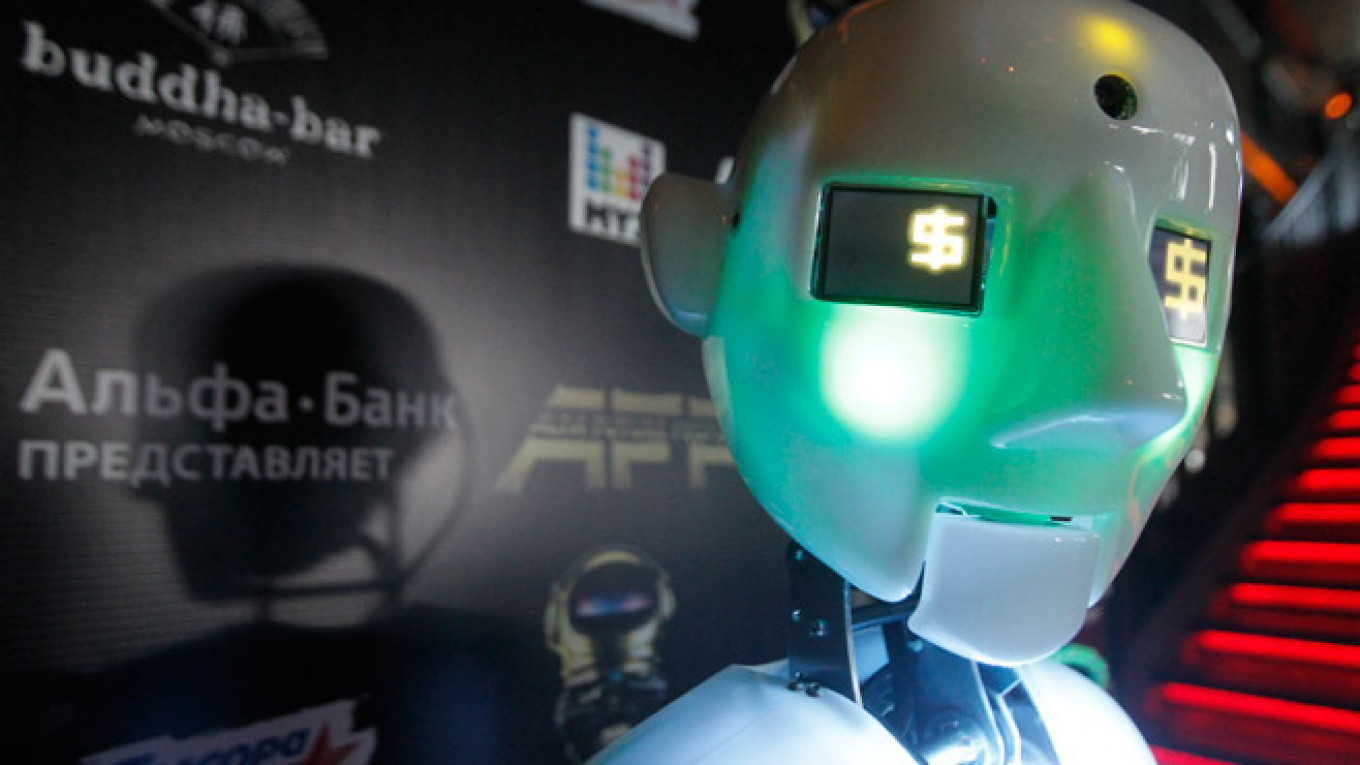For better or worse, a Terminator is unlikely to appear for at least the next 20 years, unless the Arnold Schwarzenegger-shaped robot somehow arrives from the future, as it did in the movie.
Instead, humans will be surrounded — and watched — by intelligent household devices, monitoring their every move, said the participants of an international Roboforum, which opened its doors in Moscow on Thursday.
Engineers and inventors are breaking new ground in robotics and setting up production worldwide. But Russia, despite having a good share of innovators, has remained on the sidelines of the industry. Once its robotics entrepreneurs get up and running, they look overseas for cheaper labor and better support infrastructure.
"The Terminator" is not the movie to look to for a vision of the future, Oh Jun-ho, a professor from the Korea Advanced Institute of Science and Technology, told The Moscow Times at the forum. Anthropomorphic robots are a dream for engineers, but they are difficult to make, expensive and have few functions, he said. "Instead, every home appliance will be a robot. It will be like in the movie "Transformers," with every appliance watching you and responding to your actions."
This is already happening. A conventional camera is not just a camera but an automated device that focuses on human face, its shutter triggered by a smile. Television sets monitor eye movement, intelligent lighting systems respond to sound.
"A future household robot would be a vacuum cleaner with a camera and microphone, operated remotely by a smartphone. It will be a mobile agent, able to communicate with and organize other house appliances," said Oh when asked to envisage what a civil robot would look like in 10 years' time.
While industrial and household, or service, robots are a fast-emerging new global market, Russia so far has acquired only a small portion of it. It buys robots each year by the hundreds, while according to the International Federation of Robotics, in 2012 about 3 million robots were sold worldwide for personal and domestic use and almost 160,000 for industrial application.
As for domestic production, local robot makers have come up against administrative and financial barriers.
RBOT, a Russian company that in 2008 invented and released a remotely operated mobile interactive robot branded "R.BOT 100," one use of which is educating schoolchildren, decided to base its production facilities in China. Vyacheslav Kravtsov, the company's project executive, said that the decision was made because the company received no support from the government. Production costs were also cheaper in China than at home.
Grishin Robotics, set up by the co-founder of Russian Internet giant Mail.ru Group Dmitry Grishin and now an international investment company, chose last year to invest $500,000 in Swivl, a U.S. company that produces robotic video devices, and not a Russian one.
Albert Yefimov, the head of IT projects at Moscow's Skolkovo Foundation, did however have a more positive thought about the high-technology future, though not a Russia-specific one. Much has been said about the threat of human labor being made redundant by increased use of robots in industrial manufacturing, but the robotization of production does not necessarily mean that factories will be devoid of human labor, Yefimov said: "A robot has to be invented, assembled and then programmed and operated. On average one robot creates four work places for humans."
Contact the author at a.panin@imedia.ru
A Message from The Moscow Times:
Dear readers,
We are facing unprecedented challenges. Russia's Prosecutor General's Office has designated The Moscow Times as an "undesirable" organization, criminalizing our work and putting our staff at risk of prosecution. This follows our earlier unjust labeling as a "foreign agent."
These actions are direct attempts to silence independent journalism in Russia. The authorities claim our work "discredits the decisions of the Russian leadership." We see things differently: we strive to provide accurate, unbiased reporting on Russia.
We, the journalists of The Moscow Times, refuse to be silenced. But to continue our work, we need your help.
Your support, no matter how small, makes a world of difference. If you can, please support us monthly starting from just $2. It's quick to set up, and every contribution makes a significant impact.
By supporting The Moscow Times, you're defending open, independent journalism in the face of repression. Thank you for standing with us.
Remind me later.






